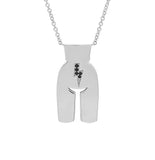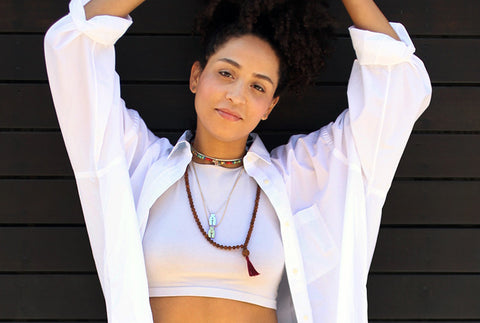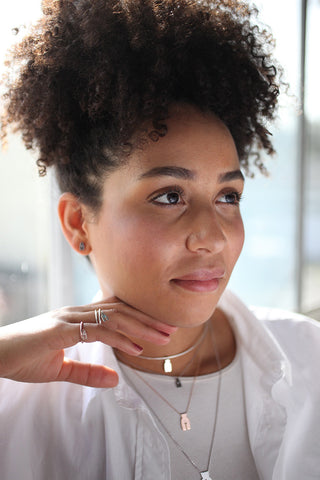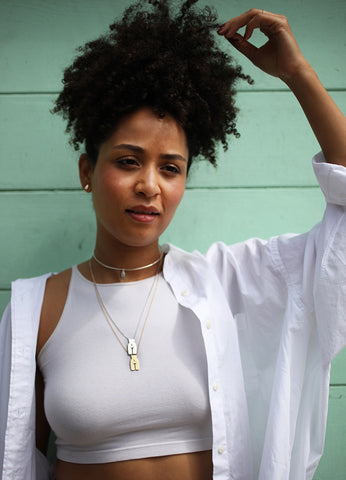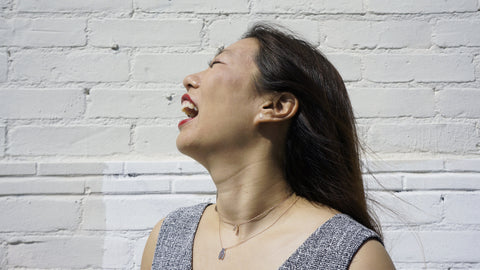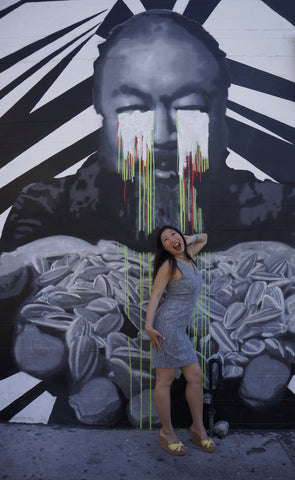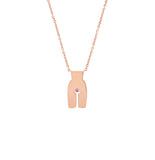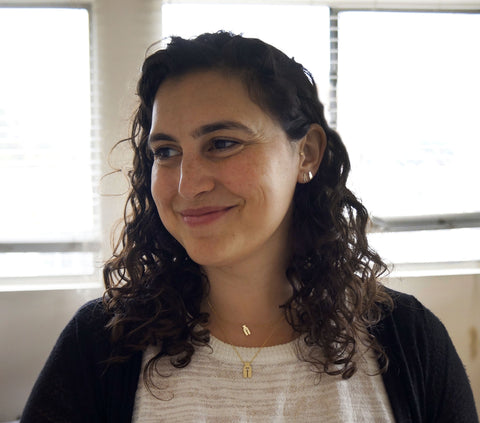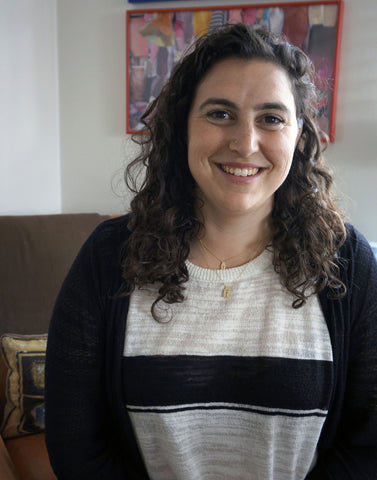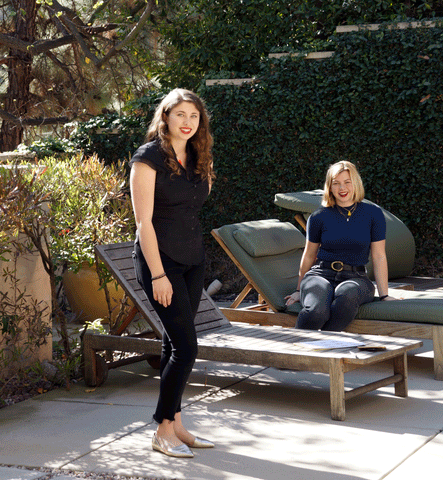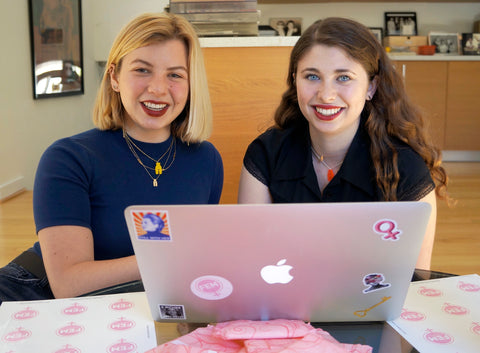Stacy Cohen: Addiction & General Psychiatrist
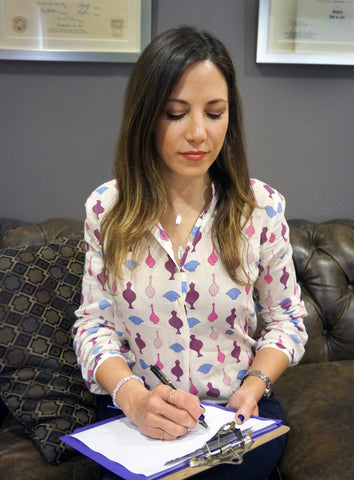
Dr. Stacy Cohen in her office at the Cedars-Sinai Medical Office Towers in LA
You are a psychiatrist specializing in general psychiatry and addiction psychiatry. What led you to that career path?
I actually started in general surgery because I loved operating. While I saw some incredible things as a surgeon, I was quite unhappy with two major components: the short-term nature of patient relationships and the lifestyle. I switched from surgery to psychiatry in residency, knowing that psychiatry always came naturally to me. It took some humility for me to accept that becoming a surgeon wasn't my path, but ultimately, for me being a psychiatrist allows me to be a better doctor and person. I love the long-term relationships I build with patients and watching them grow. I am challenged to keep up with evolving research and humbled by the knowledge that we don't have all the answers. In the addiction field, so much of recovery work is helping people with self-acceptance and self-care. My career change gave me personal experience with surrender and transformation, which helps me understand this process better for my patients. Plus, now I have a little more time to sleep.
As women we are constantly told that we are "crazy." What's a good response to this? And self-reminder to all women that they are not cray?!
Many of us are guilty of using language like this without realizing the potential consequences or implications. I think education and empowerment are essential, and the context is also extremely important. For example, gas-lighting is a very dangerous form of emotional abuse which often occurs in intimate relationships. It involves the abuser manipulating a situation or conversation in such a way that leads the victim to question his or her sanity. It is so common for me to hear females question "whether I'm the crazy one" for months, years, even decades only to realize later they were a victim of emotional abuse.
Alternatively, let's say you are acting irrationally, which we are all guilty of now and then. Try to own it as an action rather than an identity. You could say, "you're right, I'm being a little irrational. But calling me crazy isn't fair, nor is it going to help me address my behavior."
Educate yourself for if/when someone calls you crazy. If you feel you and/or they are equipped, you can possibly educate them about why using that terminology is not productive. And finally, in the right situation, channel your inner comedian. A humorous comeback can be super empowering, ladies!
How do you balance a medical and holistic approach? How can we translate that into our everyday life?
Most of my patients would tell you that I speak to them often about self-care. I can't stress it enough. Self-care includes anything from taking your meds, exercising, sleeping according to your bodies' needs, addressing unhealthy relationship patterns, etc. I have trouble doing medication management alone without knowing the whole picture. Sometimes grief can be mistaken for a major depressive episode and vice-versa.
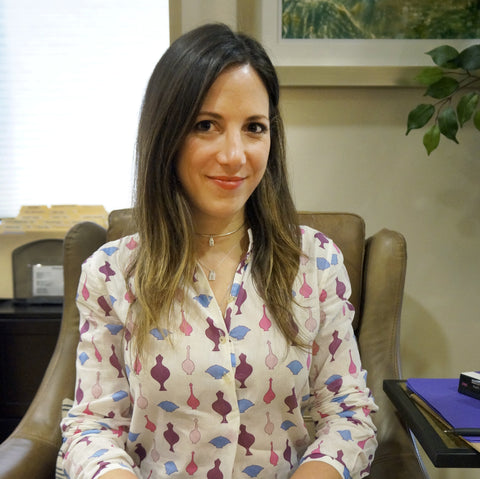
You work in downtown Los Angeles at a community mental health clinic that services people who are underprivileged and oftentimes homeless. What do you think is the most common cause for homelessness?
There are many causes of homelessness. Depending on what studies you look at, the major causes seem to be lack of affordable housing, mental illness including substance use disorders, poverty, and unemployment. Natural disasters and tragic life occurrences (i.e. loss of a loved one, domestic violence, medical illness) also contribute. A disproportionate number (up to 40%) of homeless males are veterans. It's not uncommon for me to work with people who have been on lists waiting for affordable housing for years. It's devastating.
What do you like most about being a woman?
Being a woman is a special gift - both with privileges and responsibilities. First, I love our complexity. Like the moon, we cycle, and it often means there is little time for dull moments. I'm an action-driven person and I live well in organized chaos, so "cycling" keeps things interesting. With our complexity comes intuition, creativity, beauty, and a highly dynamic presence. Next, I see having the option to give birth to a child as a huge gift. Though I don't have children of my own yet, I did my chief resident year in Women's Mental Health and had the opportunity to treat many women going through pregnancy. It's become a sub-specialty of mine because I really enjoy watching people go through the process. Pregnancy is actually found to be a protective factor for women in recovery. Having the responsibility of motherhood helps a lot of women change their behaviors. It's magical to watch the bond they form with their children.
What is an ideal woman to you?
An ideal woman embodies the moto "you be you". That's all I have to say about that :).
Who are you crushing on and why?
Oh there are so many! I'll narrow it down to three: Linda Sarsour, Nora Volkow, and Demi Lovato. Linda is a badass human rights activist and mother of three from Brooklyn who has been passionately working for over 15 years to break down cultural and gender barriers. She was one of the main organizers and speakers of the January 11th Women's March. Nora Volkow, the director of National Institute of Drug Addiction, is the scientific pioneer for understanding addiction as a brain disease. Her work is revolutionizing our ability to understand, de-stigmatize, and treat mental illness. Demi Lovato has courageously gone public about her struggles with mental illness. As an international superstar, she is creating a mainstream conversation about mental illness by making counseling part of her concerts, documenting her struggles for the public to learn from, and owning a treatment center. And she's only 24 years old!



